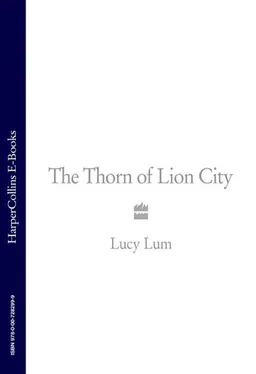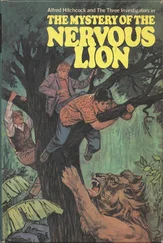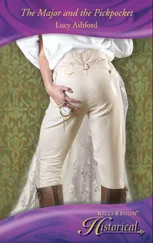My aunt told Popo that if there was nothing left from dinner the day before, she and her mother-in-law would have plain congee, with a sprinkle of soy sauce, for lunch but she insisted, miserably, that she was content and adjusting to married life.
When my aunt admitted that she had no say in how the family’s money was spent, Popo’s hopes of staying for a few days and taking control of the family were dashed. It was hardly likely that her second son-in-law was going to part with any of his wages. Still, she was curious about what he did with his money. My father had a large household to feed, and my new uncle earned almost as much as he did. She decided that as a bachelor he must have saved a large amount. She began to press my aunt for the truth about her husband.
‘Is he gambling?’ she asked. ‘Does he go to prostitutes? What does he do with his money?’
Finally Aunt Chiew-foong lost patience. ‘Enough,’ she said. ‘He never goes to prostitutes. We go to bed early every night because he wants a fat son quickly.’ Then, in a hushed tone, she added, ‘I wouldn’t dare ask him for money but he talks about it with his mother. She has a lot of gold jewellery.’ She nodded towards her mother-in-law’s room and whispered, ‘It is hidden under her mattress and she never leaves her bed.’
‘Why? Is she lame?’
‘No, only blind. The jewellery keeps her in bed. She is afraid to leave it unguarded.’ Aunt Chiew-foong told Popo that as her mother-in-law never left her bed, her legs had become weak. She took her mother-in-law’s meals to her and the woman ate them leaning against the pillows. She wouldn’t even take a bath, but was wiped with a wet towel as she lay on her bed. Rather than go to the toilet, she used an enamel pot.
‘My husband used to pay someone to come in to help a few times a week, but he sacked her after we got married. Emptying the pot and cleaning her every morning is my duty now,’ said Aunt Chiew-foong.
Popo shook her head. ‘How can you do this without complaining?’ she scolded. ‘Aiii-yah, after all the trouble I took to find you a husband, you are a servant to a blind old woman.’
Six
Three years before the starving Japanese silkworms would begin their deadly journey across the sea to Singapore, we moved from Popo’s flat in Chinatown to a two-storey house in the Tanglin area of Singapore. Father was doing well as an interpreter and thought that now he could afford a house for his family he would escape Popo. But she decided to let her flat and come with us.
Our new house seemed full of light after the gloom of the flat in Chinatown. Downstairs we had a sitting room, a dining room and a kitchen. Half of the kitchen was open to the sky: that was where we did the laundry and where we ground soaked glutinous rice into the flour that we used to make sweet dumplings. Outside our front door, I would watch passers-by, and families sitting and talking outside their houses. Tanglin was different from noisy Chinatown where people pushed and shoved, chattered loudly in different dialects, and the smelly open drains were always filled with stagnant water and rubbish. The house stood on Emerald Hill Road, which snaked up to meet Cairnhill Circle, and in the afternoons piano and violin music drifted into our house from the children next door. On the pavement boys and girls played badminton and marbles.
Our neighbours in Tanglin were Chinese but dressed in Malay clothes. They spoke Malay and English, but only a few words of Cantonese. The women wore colourful sarongs and the long-sleeved kebaya , made of voile and embroidered along the edges and the cuffs. In place of buttons, a krosang – three long gold pins linked with a fine chain – held it together at the front. On their feet they wore multi-coloured beaded cloth slippers, and it wasn’t long before my mother and Popo discarded their clogs for a pair each.
We discovered from our neighbours that they were ‘Straits Chinese’ or Peranakans, which means ‘locally born’. Their Chinese ancestors had settled in Malacca, one of the four British Straits Settlements; the men were known as babas, the women as nyonyas . Popo said it was strange that a Chinese person could not speak Chinese. Over the centuries the Peranakans had adopted the culture and language of the Malays; my mother and Popo noticed that the nyonyas were polite and refined, unlike their own women friends.
My father’s office was close by, so he no longer had to cycle to work early in the morning. Instead, he walked through the leafy streets, and I would watch him set out each morning, his black hair gleaming with Brylcreem, combed straight back with a side parting; he wore a crisply starched white shirt and trousers. He enjoyed his job, but his interest in books and languages did not die away. He bought books all the time, regardless of the cost, and paid for them in monthly instalments, building up a small library at our new home. He stamped each one ‘Lum Poh-mun Library’. There were books on language, history, psychology and the classics, and one shelf was filled with paperback novels. I would often see my father reading books like The History of the Roman Empire , or the five classics: Changes; History; Poetry; Collection of Ritual ; Spring and Autumn . He told me there was so much wisdom in their pages that he could never finish learning from them. His favourites, though, were the Four Books of Confucian literature – the only ones he had that his mother had brought from China. He told me that reading them reminded him of Kum Tai, who had read them to him on their farm, where the rambutans and the scarlet mangosteens had grown. From them he had understood the value of learning, the importance of integrity, sacrifice and duty, and that human nature tends to be good.
Popo still ran the house and my mother did not dare challenge her. Father tried to insist that his wife should have his wages but did nothing when she handed it to Popo. With the family money in her hands, Popo dismissed the cleaner, who had come in for a few hours in the morning, and hired a live-in servant to do the washing. Father said that the real reason Popo had taken her on was to impress the neighbours.
Sum-chay belonged to an association of professional servants, known as mah chay . They looked down on other servants who did not have their special training and would carry out only certain duties. They wore black trousers and white Chinese blouses, and we called them ‘the black-and-white snobs’. Sum-chay made it clear at her interview that she would not cook or look after children. Although she was in her early forties, she had never married and didn’t like this to be mentioned. We children called her by her name followed by the respectful ‘Older Sister’, and after a while she softened towards us and would sometimes keep an eye on my younger sister Wang-lai while my mother was playing mah-jongg with her friends. Every festival day she left our house and returned to her lodgings in the coolie fong , where all the mah chay would congregate, to celebrate with her fellow professionals.
One evening at the house in Tanglin I caught a chill after I had spent too long bathing in cold water. Hot water was a luxury in my family, and we only had it when we were unwell. My cold had persisted for more than a week and I developed a burning fever. I did not see a doctor as my grandmother never allowed us to use Western medicines: she took charge of our health and had a cure for every ailment. Bottles of dried herbs lined the kitchen cupboards, alongside jars of birds’ nests, lotus roots, dried bees, lizards, sea-horses and cockroaches. Some, like the sea-horses, were added to soups and stews as a health-giving ingredient; others, like the many bitter herbs, were for medicines. Whenever we were ill, Popo would point at several jars in turn and Sum-chay would take them down and put them on the table. Then Popo would take a handful from one, a pinch from another, mix the herbs on a bamboo tray and tip them into a pot for boiling. Some of her treatments were simple: if a rash appeared on someone’s skin, she would say it was caused by spiders crawling over it in the night and would soak dried orange peel in water, chew it to a pulp, then paste it over the rash. Her concoction for my fever was made up of nearly twenty herbs, insects and animal parts, simmered to a black, glutinous soup. I swallowed it obediently, trying to ignore the horrible smell.
Читать дальше












